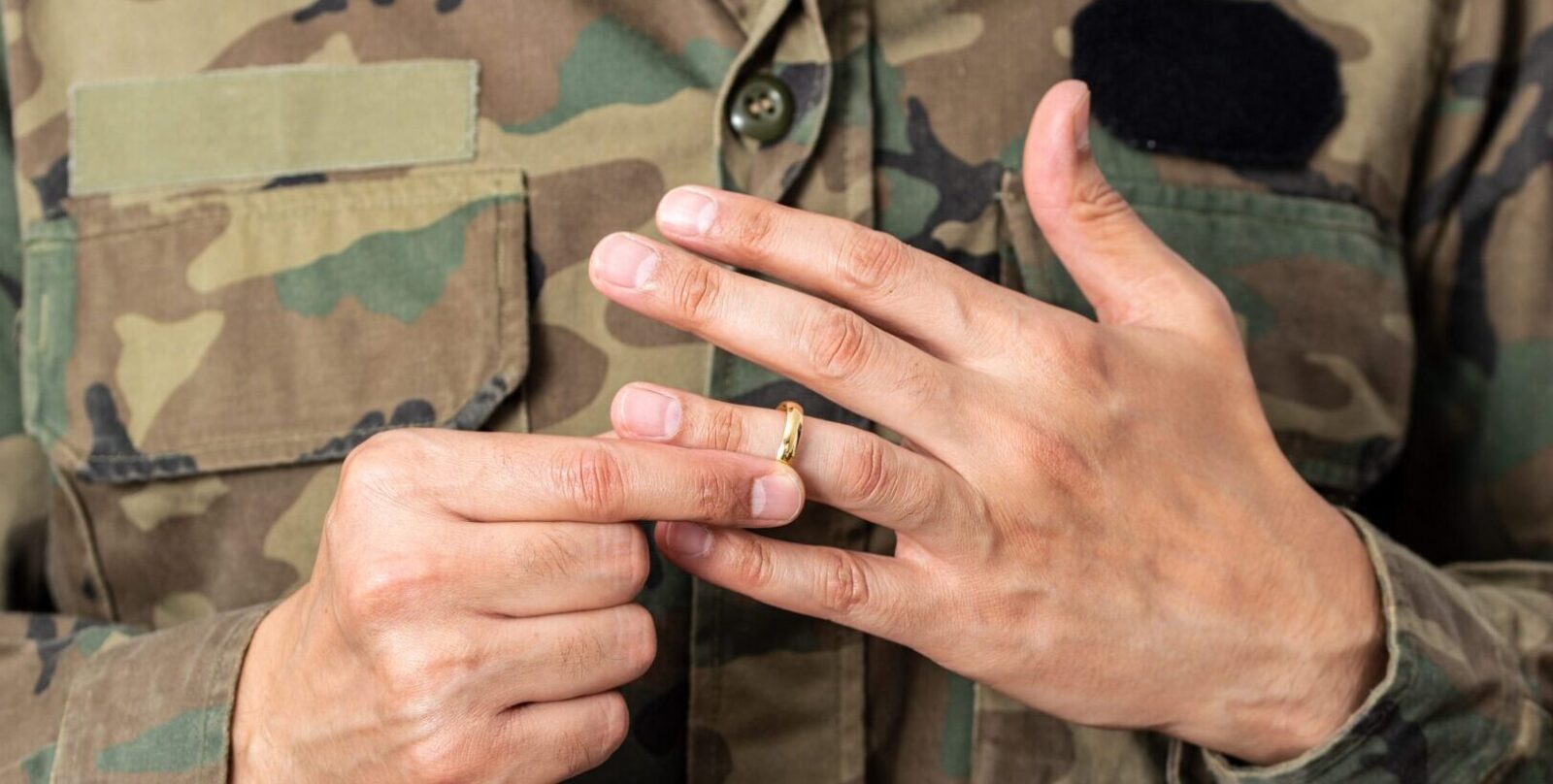Going through a divorce is difficult. If one spouse is in the military, it can complicate things even more. Navigating the complexities of military benefits and martial share of pensions while learning the legal system and trying to move on with your life can be impossible.
Service members and their spouses are flooded with information from friends, family, online support groups, and even google. While these resources may be helpful, they can often add further confusion an already confusing situation. Every state has its own unique set of divorce laws; and Virginia is no different.
There are very particular rules that you must follow in order to be granted a divorce in Virginia; and to make things even more challenging, there are certain Federal rules that come into play for military divorce. Due to these specific rules, we have come across a lot of myths or untruths surrounding the divorce process.
1. If one party is active duty in the military, they will be able to use the JAG office for help.
The JAG office can be a wonderful resource for both military members and their spouses. However, JAG officers will rarely get involved in family law matters. Generally, you will be advised to seek the help of a local divorce lawyer. To proceed with divorce in Virginia, one party must be a resident and domiciliary of Virginia for at least 6 months prior to filing. If only one spouse lives in Virginia, there may be other matters that the court cannot determine. Division of assets has to be handled in the jurisdiction where the parties last resided or hold property. Custody has to be handled in the “home state” of any children. For military members that are transient, navigating the initial jurisdictional obstacles can be difficult, which is why you need an attorney who is experienced in military divorce cases.
Schedule your free meeting with our team today to see if our Lawyers can help you.
2: You can divide a VA Loan (Department of Veteran Affairs) or transfer it to a spouse.
The servicemember’s VA loan is a benefit awarded to them by the Department of Veteran Affairs and is not property that can be distributed or awarded to a former spouse. However, if there is lump sum VA benefit there may be situations when that benefit becomes marital. Determining a spouse’s exact entitlement will depend on a number of factors.
3: The Spouse will have to surrender their dependent ID card when the divorce is filed.
ID cards are administered by the Department of Defense and are only revoked upon entry of a final order of divorce (or other disciplinary action separate from divorce). Neither separation nor merely filing a divorce action will trigger a revocation of the dependent ID card or dependent benefits provided by the Department of Defense. In some cases, a spouse may be eligible for lifetime benefits even after a divorce is final.
Click to contact our family lawyers today
4: Servicemembers are required to pay 50% of their basic allowance for housing (“BAH”) for child support.
In Virginia, child support is calculated pursuant to the child support guidelines found in Virginia Code §20-108.2. A servicemember’s BAH is included when determining their gross income, but there is no state guideline requiring a servicemember to pay a particular percentage of their BAH to support their dependent children.
Schedule a call with one of our client services coordinators today
5: VA disability pay is divided the same as military retired pay, or VA disability is not used in calculating support.
VA disability cannot be divided like military retired pay, but it is counted as income for support purposes. Calculating a spouse’s gross income will include their regular pay, retirement pay, disability, BAH, and other benefits.
6: If an active duty servicemember commits adultery (or is alleged to have committed adultery), they will lose their clearance or their job.
An allegation of adultery in a complaint for divorce is not conclusive evidence that adultery was committed, nor is it a guarantee that an active duty spouse will lose their clearance or their job. The Department of Defense is solely responsible for administering and revoking security clearances. The Uniform Code of Military Justice (UCMJ) governs discipline and punishment for violations of military law, which includes adultery. While a civilian divorce complaint can be used against a servicemember in UCMJ proceedings, the Department of Defense is ultimately responsible for prosecuting and punishing a servicemember for adultery—it is not done through divorce proceedings in circuit court.
7: A spouse is entitled to half of the servicemember’s Post 9/11 GI Bill benefits, or those benefits may never be divided in divorce.
Again, both of these are myths. 38 U.S.C. § 3020(f)(3) strips state courts of any authority to order a division of these benefits, but it does not preclude parties from negotiating the division of GI bill benefits as part of their marital settlement agreement. In other words: GI Bill benefits cannot be taken from a servicemember, but the servicemember can elect to divide their GI Bill benefits.
About Melone Hatley, P.C.
If you are facing a military divorce, it’s time to get an attorney. The top-rated attorneys at Melone Hatley, P.C. are here to help! Melone Hatley, P.C. is a family and estate firm serving Virginia Beach and Northern Virginia. Our philosophy is to provide all of our clients with the highest quality legal representation, innovative legal solutions, and unsurpassed dedication to customer service. Through our high standards, we strive to be a trusted resource to our clients. We know from experience that a successful attorney-client relationship depends on our ability to understand your needs and objectives. For more information about military divorce, contact our office at 800-479-8124 or book your appointment online.
Schedule a call with one of our client services coordinators today.





